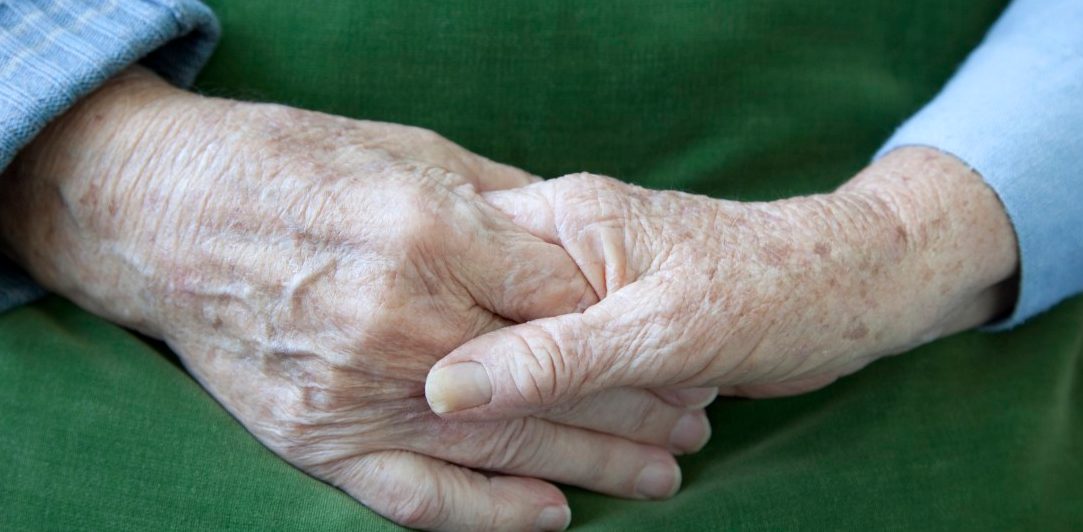Can You Die from a Broken Heart?

Heartbreak can be deadly, but knowing the risks can help protect your health and life.
Less than 24 hours after Helen Felumlee of Nashport, Ohio, died last year, her husband Kenneth, 91, passed away, too. Within months, news reports also carried the touching story of Margaret Williams and her husband, Edmund, who experienced the same fate in 2014. The elderly couple, who lived in Wales and had been married for 60 years, died within days of each other.
Examples of bereaved spouses dying soon after their loved ones’ passing are not rare, especially among the elderly. In fact, “dying of a broken heart” isn’t just a way to say someone is very sad – it can sometimes be literally true.
RELATED TOPIC: The Link Between Mental Health and Heart Problems
Scientists have learned that the impact of a sudden event, such as the death of a loved one or a traumatic breakup, can have potentially serious effects on health. While the stress may have a more severe impact on the elderly, it can affect people at any age.
For example, a study by University of London researchers found that people were twice as likely to experience a heart attack or stroke in the month following the death of a loved one compared to a control group who were not grieving. Another study, headed by Harvard researchers, concluded that a bereaved spouse’s risk for dying from any cause increased significantly for 6 months after a partner's death. UK researchers from the University of Birmingham have also found that the immune system can be weakened during profound grief in older people, reducing their ability to fight off infections.
In 1990, Japanese scientists were the first to document a potentially fatal “broken heart syndrome,” triggered by sudden, extreme stress, such as the unexpected death of a loved one. Researchers believe a flood of stress hormones released in the body during times of intense shock can stun and weaken the heart muscle.
Stress cardiomyopathy, or "broken heart syndrome," causes the left ventricle, one of the heart's chambers, to change shape and balloon outwards. Symptoms include low blood pressure, chest pain, potentially serious irregular heart rhythms, and heart failure.
Although reported cases of the condition are on the rise, there’s no reason to think it is a new disorder. Instead, researchers think it was probably misdiagnosed in years past as heart attack because of similar symptoms and accompanying changes in a grieving person’s electrocardiogram. Why some people are more likely to experience stress cardiomyopathy than others is unknown, although women are at increased risk.
For some people, the condition can trigger a heart attack or sudden death. Fortunately, however, people suffering from stress cardiomyopathy who have fairly normal coronary arteries usually recover fully. When stress subsides, the heart returns to normal.
If you, or someone you care about, is faced with sudden heartbreak and loss, how do you take action to reduce possibly serious health consequences of grief? And what behaviors or symptoms need immediate professional help?
“Obviously, feelings of depression and at times confusion, loss of sleep, inability to attend to other life issues, and also periods of acute distress, are often seen when a person is grieving,” says psychologist Michael Stefanek, chairman of the Department of Psychological Sciences at Georgia Regents University.
“Symptoms that suggest grief and mourning are becoming worrisome for psychological and/or physical health have much to do with severity and duration. If loss of sleep is significant, or if depression does not allow you to eat adequately or take care of health needs, this becomes critical over time. It is the severity of the reaction that needs to be assessed – does it result in a lost job or impaired relationships or chronic failure to take care of oneself?”
If you experience severe loss and sadness, Stefanek advises reaching out to your primary care doctor for help early in the grief process so any health problems or depression can be diagnosed and treated. He adds that it is also important to identify an “A team” – friends and family you can lean on for emotional support and help with errands and transportation, if needed.
“In addition, schedule some activities and do them even if there is no joy for a while,” Stefanek says. “Grief support groups can be wonderful ways to help yourself and others get through loss. You will appreciate you are not alone and that your symptoms, such as thinking you hear your loved one’s voice at night, do not mean you are crazy.”
For friends and caregivers of a person suffering the death of a family member or other traumatic event, the best strategy for helping is to reach out. “Sometimes words don’t do as much as we would like to ease the pain. Ask how you can help. Don’t worry too much about what to say. The most important thing is to listen,” Stefanek emphasizes.
Updated:
March 03, 2015
Reviewed By:
Christopher Nystuen, MD, MBA